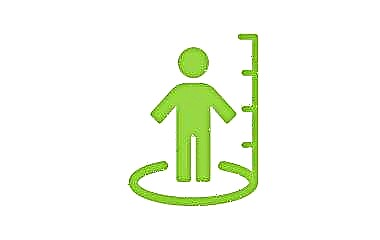
A urine test helps to quickly find out if the child has urinary system diseases. Why can a baby be prescribed a determination of nitrites in urine, what will this indicator tell about and is it worth worrying if nitrites in children's urine are increased?
What is it?
Nitrites are chemicals that are nitrogen salts. In the urine of healthy children, nitrites are not detected. Normally, nitrates are excreted in the urine, which enter the child's body with vegetables and fruits. If bacteria enter the urinary tract, nitrates become nitrites under the influence of their enzymes.
What kind of analysis are detected?
To determine nitrites, a screening assay is carried out, which is characterized by high specificity. It is included in the general analysis of urine.
With a positive result, only 4% of the tests show no bacterial contamination of urine. But with a negative result, there is a very large error of about 50%, which determines the limited use of this screening.

Analysis features
The nutrition of a child who was sent for urine collection for the determination of nitrites should not be changed, and it is recommended to exclude any medications, including vitamins, before testing. In addition, for the detection of nitrites, it is important to examine the freshest urine that has been collected in a sterile container. This will help to figure out the real picture, and to make sure the results are accurate, you should do several tests, waiting 4-5 days between them.
Home test
You can detect nitrites at home using special strips purchased at the pharmacy. They are coated with a special reagent, which, in the presence of nitrites in children's urine, reacts with these compounds. By looking at the color intensity of the test strip, you can roughly estimate the concentration of nitrite (for this, the strip is compared with the marker on the package). The strips begin to detect these chemicals when levels are greater than 2 mg per liter of urine. In this case, the strip turns light pink.
The concentration of nitrites is influenced by the type of bacteria and their number, therefore, the reliability of this home method of determination is considered at the level of 60-70%. It is also affected by the excretion of ascorbic acid in the urine and the frequency of urination.
It is important to check with the test strip the first portion of baby urine, and for more accurate results, the child should not take antibiotics for three days before the test. It should also be remembered that a negative test result does not indicate that there are no nitrites in the urine, as their amount may not be sufficient to initiate a chemical reaction.

Additional symptoms for anxiety
You can suspect the presence of nitrites in the baby's urine by the following signs:
- The urine is cloudy, its smell became unpleasant and sharp.
- The child began to urinate more often than usual.
- A toddler may complain of pain during small hikes.
- The child has a high body temperature, weakness, he refuses food.
Causes of occurrence
Detection of nitrite in a child's urine is performed to diagnose urinary tract infections. The appearance of such compounds is characteristic of cystitis and pyelonephritis caused by salmonella, citrobacter, Klebsiella, E. coli and other pathogenic microbes.
In newborns
In young infants, the appearance of nitrite in urine may be due to the use of diapers.
Inside the diaper, if used incorrectly, conditions favorable for the development of infection are created. Hygiene is also important, since it is possible to introduce an infection into the urinary system by improperly washing the baby.
In older children
In older children, the risk of infection increases. Bacteria can enter the urinary tract in case of violations of hygiene rules, and with injuries and diseases of the genital organs. The development of infection is often associated with hypothermia, so it is important for parents to ensure that the child is dressed for the weather and does not sit on a cold surface.

Reasons for false negative results
In about every second case, the result of a test for nitrite in urine is false negative - the test does not detect nitrite, but bacteria are present in the urine. This could be due to:
- The inability of some bacteria to convert nitrates. It is known that many gram-positive microorganisms do not possess enzymes that affect dietary nitrates.
- Rapid emptying of the bladder. For bacteria to produce nitrite, urine must remain in the bladder for at least four hours. This is why it is best to examine your morning urine sample.
- Excretion of large amounts of ascorbic acid in the urine. Also, a high concentration of urobilinogen can lead to a false negative result.
How to treat?
If the tests found nitrites in the child's urine and repeated studies have confirmed this, the doctor will first send the baby for other examinations to make sure that there is an infectious process.
Identified urinary tract infections are treated with antibiotics and other drugs that should only be prescribed by a specialist. In addition, the baby is prescribed a certain diet, from which fresh fruits and vegetables are excluded.

Mom should only remember that such treatment is long-term, and when the symptoms of the disease have disappeared, antibiotic therapy cannot be stopped. An untreated infection will resume after a while, but the bacteria will no longer respond to the same antibiotic.



